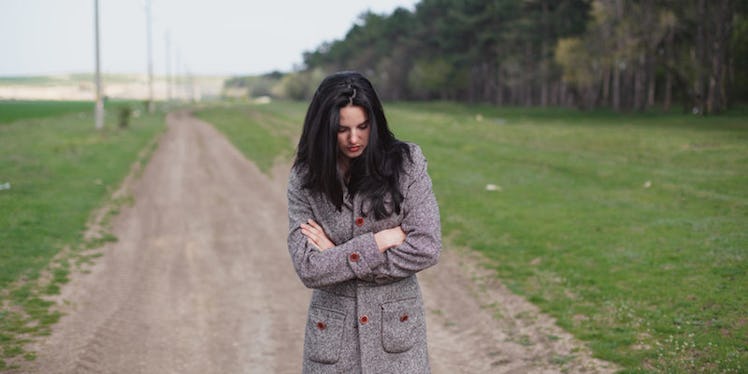It's really hard to deal with unexpected change, no matter what it is.
It could be a breakup you never saw coming, getting laid off from a job you thought you would retire from or getting kicked out of an apartment you thought you'd become an old cat lady in.
You may find yourself questioning everything you've ever done, and you may even find yourself not trusting anyone anymore.
But it's all just part of life.
This might sound really emo, but most relationships weren't meant to last forever. In fact, most things in life don't.
Whether it's your friends, colleagues, dog or significant other, at some point, one leaves the other. It happens, and there's no way around it.
Psychologist Karen Kissel Wegela uses text from the term bardo from the "The Tibetan Book of the Dead" as a metaphor to explain how we react when something ends.
What exactly is bardo?
Wegela explains the bardo experience is the afterlife. It's seen as a time of opportunity because there is a sense of heightened awareness and unpredictability since the people we relied on are no longer there.
Even if you don't like what's being revealed, these are the moments when you see your true nature.
The text explains that we often ignore these moments of clarity because we are stuck in habit.
Rather than see we are the ones who might need some tweaking, we habitually see things that happen as something outside of us that's the problem.
The book goes on to explain that after a while, if we still can't come to grips with true reality and recognize how things really are, we get stuck in the "bardo of becoming.”
That's trying to either go back to our old body or search around for a new one.
You don't have to believe in an afterlife to recognize this is a pretty accurate comparison to how we approach transitions.
Rather than accepting the change and having confidence in who we are, we often obsess about failure or blame external circumstances.
The shock of impermanence can leave us lost, angry or in denial.
So how do you get through this?
1. Chill out.
Wegela suggests that during this transition time, you should “recognize and relax” instead of analyzing what happened in the past and trying to find the perfect next move.
Constantly going over your options on what to do next will build up to the point where you could explode from the stress of it all.
Sometimes, that's another wake-up call.
Hopefully, you take the signal to not pay too much attention to whatever crazy thoughts are swimming around in your head.
Instead, try to just observe them without judging them.
Know this relationship is something you're no longer attached to and that it doesn't define you.
2. Don't rush to replace what's missing.
You are still simply YOU. Not all of you is lost.
The "Book of the Dead" tells us to stay in the present moment and live in whatever is happening.
You don't have to make big choices now, so wait until your head clears.
We often pressure ourselves to hurry and find the next relationship or new job without allowing time to really stop and meditate on our true selves.
We want to push out the old without dwelling on who we are without it.
I mean, there is nothing wrong with jumping into a new job because you need to pay rent, but that shouldn't be what fills the hole of your breakup.
3. Allow yourself time to feel everything.
When you allow yourself to feel emotions as they come up, you may notice they pass and go away sooner than expected.
But even if they don't, that's OK, too.
Bottling everything up will only lead to a cycle of constant beginnings and ends or "bardo" because you never fully recognized how you truly feel about a situation.
Wegela says it's not a bad idea to open yourself up to the vulnerability of anxiety, self-doubt, relief and guilt, and that doing so could lead to discovering an openness which makes you more available to others.
This ancient text has a deep message for the heartbroken: Let go, just be and trust the right things will happen when they're supposed to.
